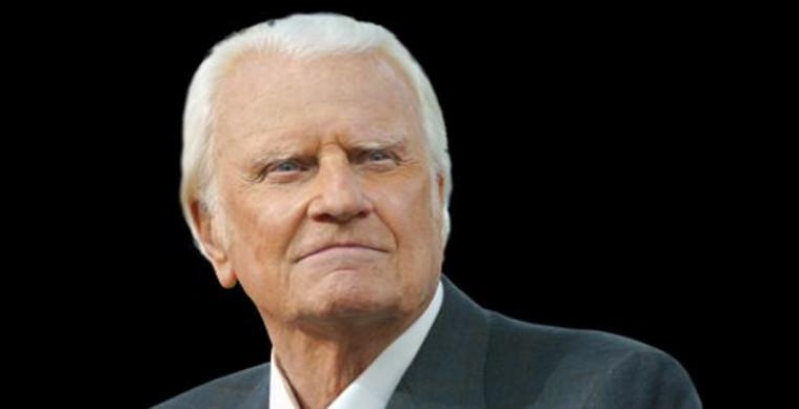
A North Carolina proposal to place a statue of the Rev. Billy Graham inside the U.S. Capitol has won final approval from the state's lawmakers. The statue of the renowned evangelist would replace that of former Gov. Charles Aycock, who had ties to the white supremacist movement.
The AP reports that on Thursday, the North Carolina Senate voted unanimously to pass a measure asking a congressional committee to approve Graham's likeness as a state contribution to the Capitol. The bill will now head to to Gov. Pat McCrory for final approval.
Graham, now 96, is one of North Carolina's most famous sons and has made the annual "Most Admired" list a record 58 times. The evangelist grew up in Charlotte and currently resides in Montreat, North Carolina. In addition to advising numerous political leaders, Graham is known for his crusades that brought the gospel to 215 million people, according to the Billy Graham Evangelistic Association.
"Graham transcends many of the divisions that break us apart as a state, and also Graham represents a time when it seems in retrospect that he was able to bridge ... those divisions," Billy Graham biographer Grant Wacker says. "In many ways, he's a unifying figure."
Congressional guidelines state that a person's statue can only be installed following their death. Additionally, each state is allowed to contribute two statues, many of which sit within Statuary Hall. Currently, there are 100 statues on display in the U.S. Capitol.
The AP notes that the bill seeks to replace the current statue of Charles Aycock, North Carolina's governor from 1901 to 1905.
Historian Milton Ready notes that while Aycock has been praised for his role in education reform, he was a prominent figure in the Democratic Party's "white supremacy" Solid South campaigns. In 2011, the N.C. Democratic Party dropped Aycock's name from its annual fundraiser after calls from both Democratic and Republican lawmakers brought attention to Aycock's white supremacy ties.
"One of the Democratic politicians who wrested control of the state from a coalition of white and black Republicans, he used his oratorical skills to foment resentment of blacks," a description of Aycock says on a Web site of the University of North Carolina. "Once in power, Aycock and his associates largely disenfranchised blacks through a literacy test and poll tax."
Aycock's statue was given to the U.S. Capitol in 1932, 20 years after his death.
Meanwhile, North Carolina's state House also voted for a resolution on Thursday requesting that the U.S. Postal Service honor Graham with a stamp, according to the AP. In 2011, postal officials ended a policy that stamps could not feature someone who is still alive.







